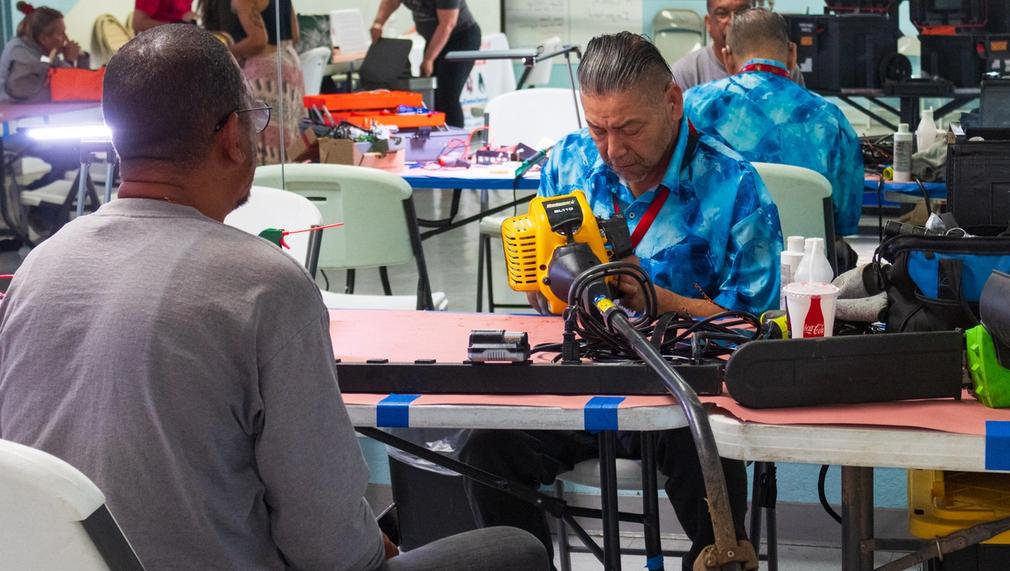Repair to Retain: Fighting Income Inequality One Repair Clinic at a Time
Repair Clinics, hosted by The Makers Hub, are free community events where residents learn how to fix their own clothing, furniture, small appliances, and more with guidance from skilled repair coaches. These hands-on sessions promote self-sufficiency, reduce household expenses, and encourage a shift toward a circular economy grounded in repair and reuse. By empowering people to extend the life of their belongings, we help keep wealth in the community and foster long-term economic resilience.

What is the primary issue area that your application will impact?
Income inequality
In which areas of Los Angeles will you be directly working?
South LA Gateway Cities Long Beach
In what stage of innovation is this project, program, or initiative?
Expand existing project, program, or initiative (expanding and continuing ongoing, successful work)
What is your understanding of the issue that you are seeking to address?
In communities like Compton, income inequality is reinforced by limited access to affordable repairs, practical skill-building opportunities, and tools. When essential items like small appliances, electronics, or furniture break, many families must pay for costly replacements or go without. This drains resources that could otherwise be used for long-term stability. At the same time, repair knowledge is becoming increasingly rare, and community members are rarely offered safe spaces to learn these skills. This increases financial strain and limits access to empowering, tech-adjacent knowledge that supports both household resilience and career readiness.
Describe the project, program, or initiative this grant will support to address the issue.
Repair Clinics are free, community-based events where trained repair coaches teach residents how to fix their own small appliances, electronics, furniture, and other household items. Rather than providing repairs as a service, these clinics offer hands-on guidance that empowers participants to build repair skills, develop tool confidence, and avoid costly replacements. Each event is structured around shared learning and mutual support, creating a welcoming space where neighbors connect, reduce waste, and retain more of their income.
Funding will support increased frequency of clinics, expanded repair categories (such as clothing and tech), and stipends for local coaches who bring their expertise and community connection. We’ll also grow our tool inventory to support more repair stations, integrate basic tool training for first-time users, and develop take-home resources in both English and Spanish. By prioritizing accessibility and skill-sharing over service delivery, Repair Clinics create lasting impact and help individuals build resilience while strengthening collective wealth and autonomy at a neighborhood level.
Describe how Los Angeles County will be different if your work is successful.
If our Repair Clinics are successful, more Angelenos, especially in under-resourced neighborhoods, will have the skills and confidence to fix everyday items instead of replacing them. This shift will keep more money in the hands of residents, reduce waste, and strengthen community bonds through shared learning and mutual support. Over time, a culture of repair will take root across Los Angeles County, contributing to economic resilience, neighborhood pride, and a broader transition toward a circular economy where communities are empowered to retain wealth, reduce dependency, and reclaim self-reliance.
Approximately how many people will be impacted by this project, program, or initiative?
Direct Impact: 200
Indirect Impact: 1,000